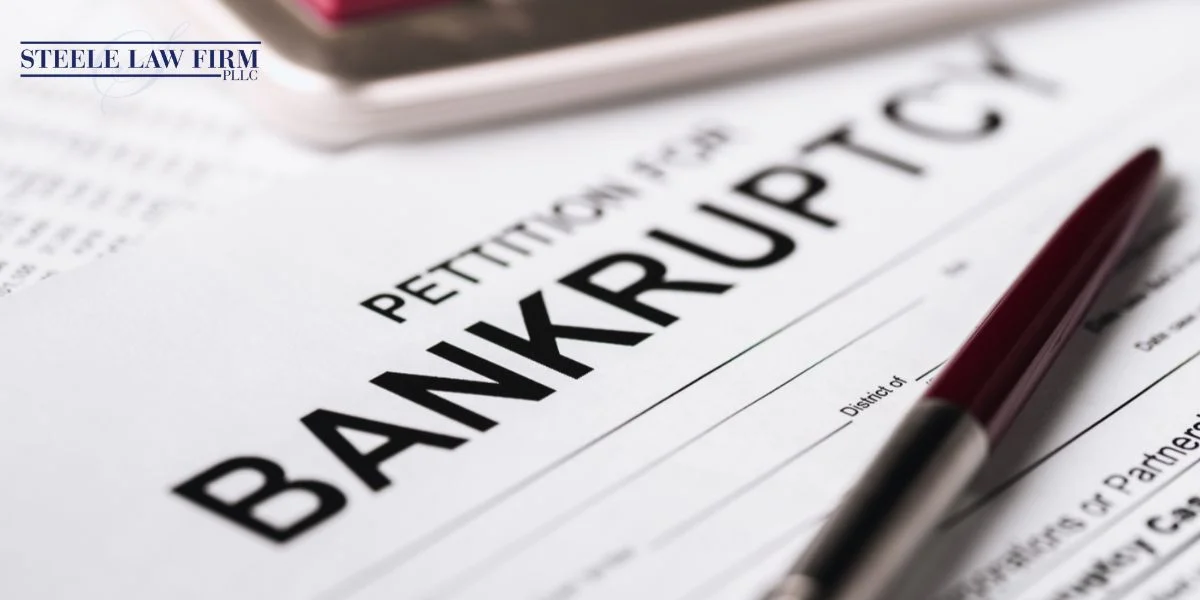If you are navigating a challenging financial situation and feel like all hope is lost, you may be asking, “Who qualifies for bankruptcy in Texas?” Bankruptcy offers relief to individuals and businesses when they are overwhelmed by debt and provides a chance for a fresh start. While this may sound immediately appealing, there are several criteria that must be present to qualify, and several types of debts cannot be forgiven.

Chapter 7 bankruptcy, also referred to as liquidation bankruptcy, can apply when an individual is unable to pay off their debts. If they qualify, their non-exempt assets, like savings, property, and investments, can be sold or “liquidated” to pay off creditors. If they have debts beyond the amount that their assets can pay for, it is usually discharged or forgiven. To qualify for this type of bankruptcy, individuals or businesses generally have to meet the following criteria:
Chapter 13 bankruptcy is often thought of as an official financial reorganization of debt repayment rather than a liquidation of assets. Through this type of bankruptcy, individuals create an official repayment plan to pay off their debts over several years. After successful repayment by following their plan, remaining eligible debts can be discharged. To qualify for Chapter 13, the following must happen:
Bankruptcy holds severe long-term consequences, both positive and negative, that are helpful to be aware of before choosing to pursue this legal option.
Positive Consequences:
Negative Consequences:
The long-term and short-term consequences of bankruptcy will vary from case to case, depending on the individual circumstances of your situation and how you manage finances going forward. The support of an Irving bankruptcy lawyer can provide essential care and insight that can help mitigate some of these negative consequences over time.
A: The qualifications for bankruptcy in Texas are:
To calculate your gross income, you will combine your income from the past six months before filing and multiply it by two. If you earn less than the median, you may qualify for Chapter 7. If you earn over that amount, you may be eligible for Chapter 13.
A: You can be denied bankruptcy in Texas for several reasons. One may be that you do not meet the eligibility requirements for the type of bankruptcy you are applying for. Another may be that you are found to be abusing the bankruptcy system to avoid paying debts when you otherwise have the means to do so. Individuals who do not adhere to the system requirements, like filling out and filing paperwork or failing to comply with court orders, can be denied.
A: The amount of money that you can keep in bankruptcy in Texas depends on the type of bankruptcy you file for. As Chapter 13 bankruptcy involves a repayment plan rather than a full liquidation of assets, the amount that you can keep depends on your repayment plan, income, expenses, and other details. For Chapter 7 bankruptcy, most of your assets will be liquidated to repay debts, so this depends on the amount of assets you have and the extent of your debts.
A: Bankruptcy may not be accepted for several reasons, such as:
Some individuals are not accepted for bankruptcy because they previously filed for it, and they are ineligible to file again within a certain timeframe.
As a local bankruptcy law firm, Steele Law Firm, PLLC, can offer essential and necessary support at a time when you need it most. By evaluating your case and exploring the options you have, we can help determine which type of bankruptcy or financial aid you qualify for. We can then guide you through each step of the process, ensuring that you navigate the complexities of bankruptcy law effectively. Consider reaching out to our firm today to set up a consultation and learn how we can support you.




